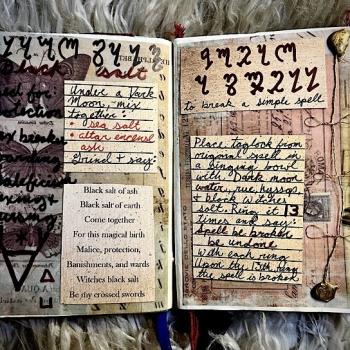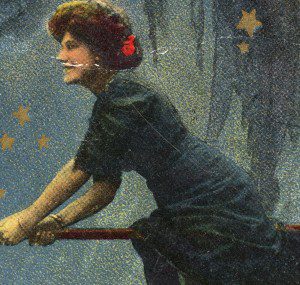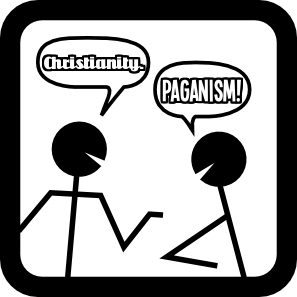 Take a moment to imagine a giant sandbox. In that sandbox are lots of small groups of children playing with various toys and having a myriad of adventures. In one corner there are some kids playing Avengers, and in another there are some playing with Batman, Wonder Woman, and Superman figures. Towards the middle of the sandbox Twilight Sparkle is having adventures with the other My Little Ponies. At the edge of the sandbox an ambitious group of children are building a giant sand castle, and next to them a few kids are making sand fairies. (There’s also probably a kid peeing somewhere in the sandbox, but that’s neither here nor there.)
Take a moment to imagine a giant sandbox. In that sandbox are lots of small groups of children playing with various toys and having a myriad of adventures. In one corner there are some kids playing Avengers, and in another there are some playing with Batman, Wonder Woman, and Superman figures. Towards the middle of the sandbox Twilight Sparkle is having adventures with the other My Little Ponies. At the edge of the sandbox an ambitious group of children are building a giant sand castle, and next to them a few kids are making sand fairies. (There’s also probably a kid peeing somewhere in the sandbox, but that’s neither here nor there.)
All of the young people in my hypothetical sandbox are doing their own thing, yet we would all agree that they are playing in a sandbox. In that sandbox there’s no one person in the middle directing traffic or issuing edicts, the kids all have their own individual games and they all seem content with that. Sure, there are a few little ones who work on the sandcastle for a few minutes and then wander off to play My Little Pony, but when they move from game to game they respect the rules of each activity.
Modern Pagandom is a lot like a giant sandbox. There are some of us practicing Wiccan Rituals while eating cakes and sipping on wine. Another group consists of ladies singing songs of praise to the Great Goddess. Druids throw sacrifices into a fire and the Asatru honor their gods. There are lots of things going on in the Pagan Sandbox, and while we might not all agree on what game to play, most of us are willing to admit that we are in the same sandbox. Those activities all have different rules; playing Avengers is different than building sand fairies. Similarly the rules of Asatru are going to be different than the rules governing Wicca.
We waste a lot of words online arguing about what is, what’s not, and who is and who is not Pagan. We all have our own definitions of the word (including me), but the simple truth of Paganism is that the majority of us know it when we see it. I have never run into a Pagan group that I failed to recognize as Pagan. Kermetic, Druid, Wiccan, Eclectic Pagan, Ceremonial Magick, Feri, Dischordian, Womyn’s Only (I walked past an outdoor ritual once), I have participated or witnessed all of those different types of ritual and while they were all different they were all easily recognizable as Pagan. Perhaps the idea of you know it when you see it is rather simplistic, but it’s true. Ancient gods, love of nature, a dash of magick; no matter what was going on in all of those rituals there was at least one or two threads common to my own Pagan experience.
 All of this is why I don’t like reading proclamations along the lines of “I would go so far as to say Paganism that isn’t Deity centric isn’t Pagan.” You just can’t make rules for the entire sandbox. The things you and your circle do in your corner of the sandbox can have their own rules, but to say those rules apply to all of us? That’s all just a step too far for me. My personal approach to ritual is that the gods are real and that they interact with us. If you come to one of my circles that idea has to be respected during ritual, but I can’t enforce that in someone’s heart, not to mention the larger Pagan sandbox.
All of this is why I don’t like reading proclamations along the lines of “I would go so far as to say Paganism that isn’t Deity centric isn’t Pagan.” You just can’t make rules for the entire sandbox. The things you and your circle do in your corner of the sandbox can have their own rules, but to say those rules apply to all of us? That’s all just a step too far for me. My personal approach to ritual is that the gods are real and that they interact with us. If you come to one of my circles that idea has to be respected during ritual, but I can’t enforce that in someone’s heart, not to mention the larger Pagan sandbox.
There are rules within traditions, and defining those rules, beliefs, and ideas is important. When we visit traditions outside of our own we agree to play by their rules. If a private circle wants to restrict membership to people who only believe in the gods they should have the right to do so. If an atheist-Pagan circle chooses to exclude “calling the gods” in their own rites they can certainly do so. What doesn’t work is taking those rules and trying to apply them to everyone else.
The Pagan Sandbox is a big place, and it’s got a lot of room for many different activities. If you don’t like how one group of people are playing, you are free to play with a different one. Heck, you can even find your own little spot in the sandbox away from everyone else as long as you aren’t peeing in it. Perhaps one day we will all play in different sandboxes, but for now we seem to be stuck together. If there comes a day when someone really doesn’t belong in our sandbox I think we’ll know it and they’ll know it. Until that day resist the urge to make rules for everybody and we’ll probably all be OK.
















